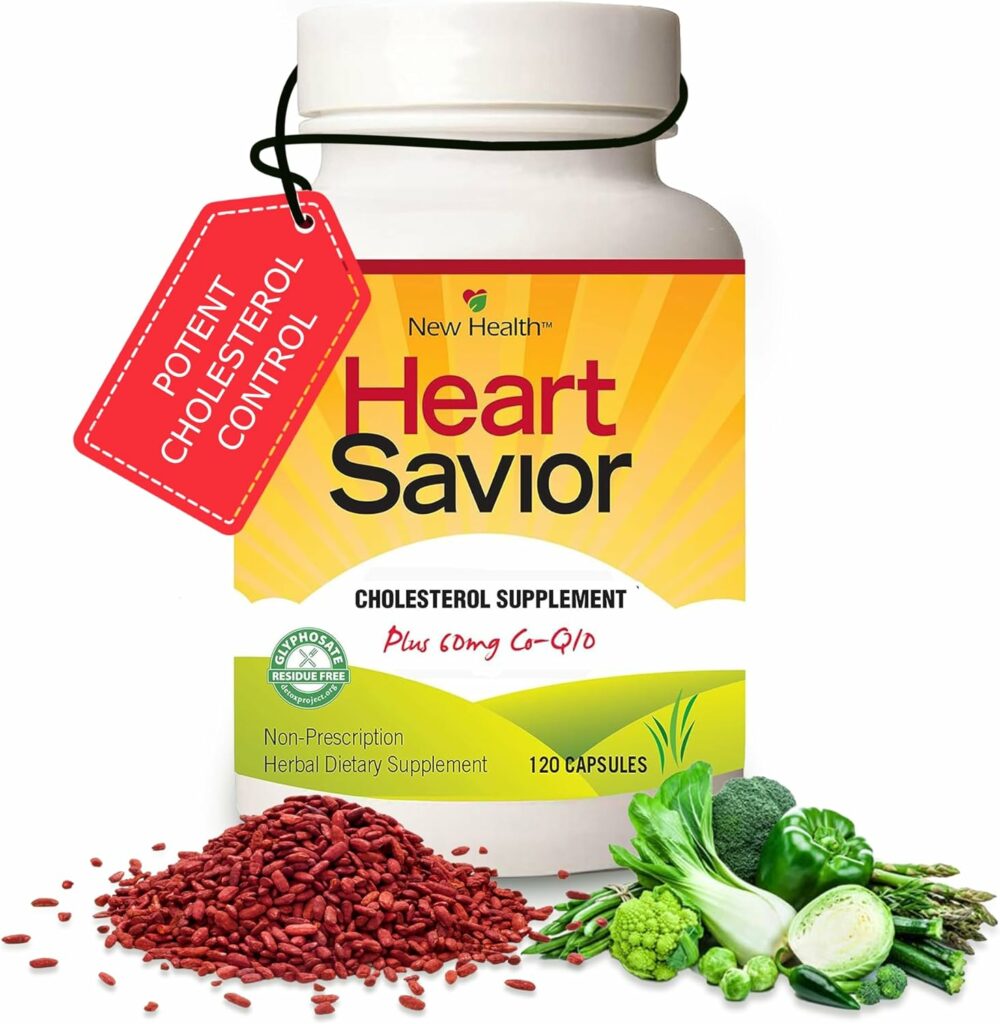Cholesterol management is a topic that hits close to home for many, including myself and my family.
Over the years, we’ve navigated the challenges of high cholesterol, learning that it’s more than just a medical condition; it’s a lifestyle concern that requires ongoing attention and care.
In this journey, we’ve discovered that reducing cholesterol isn’t solely about medication or restrictive diets.
It’s about embracing a holistic approach that incorporates natural, sustainable lifestyle changes.
In this post, I’ll share 5 natural strategies that have been instrumental in our journey.
These changes have not only helped us in lowering cholesterol levels but also in enhancing our overall health and well-being.
Let’s dive in!
What is Cholesterol?
Cholesterol is a waxy, fat-like substance found in all the cells of your body.
While it’s essential for building healthy cells, having high levels of cholesterol can increase your risk of heart disease.
There are two types of cholesterol:
- Low-density lipoprotein (LDL): Often referred to as ‘bad’ cholesterol, LDL can build up in the walls of your arteries, making them hard and narrow.
- High-density lipoprotein (HDL): Known as ‘good’ cholesterol, HDL carries cholesterol back to your liver, where it’s removed from your body.
When cholesterol levels are high, fatty deposits can develop in your blood vessels, making it difficult for enough blood to flow through your arteries.
This can lead to complications such as heart attacks and strokes.
5 Natural Ways to Reduce Cholesterol
1. Use A Cholesterol Supplement
Cholesterol supplements contain ingredients known to specifically target cholesterol levels.
For example, plant sterols and stanols can help block the absorption of cholesterol in the intestine.
In addition, some cholesterol supplements contain red yeast rice, which has been shown to help reduce LDL cholesterol levels.
Out of all the cholesterol supplements we’ve tried, my favorite is New Health’s Heart Savior.
Heart Savior contains key ingredients like plant sterols and red yeast rice that help with cholesterol absorption and better blood circulation.
In addition, Heart Savior also contains CoQ10.
CoQ10 is essential for maintaining overall heart health, which becomes increasingly important as CoQ10 levels decrease with age.
As always, please consult your doctor or other qualified healthcare provider with any questions you may have regarding vitamins or supplements.
2. Eat Heart-Healthy Foods
When it comes to eating heart-healthier foods,
- Choose Healthier Fats: Opt for monounsaturated fats found in olive oil, avocados, and certain nuts instead of saturated fats found in red meat and dairy products.
- Increase Soluble Fiber: Foods like oats, fruits, beans, and vegetables can help reduce the absorption of cholesterol into your bloodstream.
- Add Omega-3 Fatty Acids: These are found in fish like salmon, mackerel, and herring and have heart-healthy benefits.
3. Exercise Regularly
Regular physical activity can help raise HDL cholesterol.
Aim for at least 30 minutes of exercise most days of the week.
This could include walking, swimming, or cycling.
4. Quit Smoking
Quitting smoking improves your HDL cholesterol level.
Additionally, the benefits occur quickly: Within 20 minutes of quitting, your blood pressure and heart rate recover from the cigarette-induced spike.
5. Lose Weight
Carrying even a few extra pounds contributes to high cholesterol.
Small changes can add up: drinking sugary beverages less frequently, eating fewer processed foods, and incorporating more activity into your daily routine can all help.
BONUS: Limit Alcohol Use
If you drink alcohol, do so in moderation.
For healthy adults, that means limiting yourself to one drink every couple of days for women and up to two drinks every couple of days for men.
Work towards less frequency for better results.
Heart Healthier
Managing cholesterol is crucial for maintaining heart health.
By incorporating these natural strategies into your lifestyle, you can significantly reduce your risk of heart disease and improve your overall well-being.
Remember, it’s always a good idea to consult with a healthcare professional before making significant changes to your diet or exercise routine.
